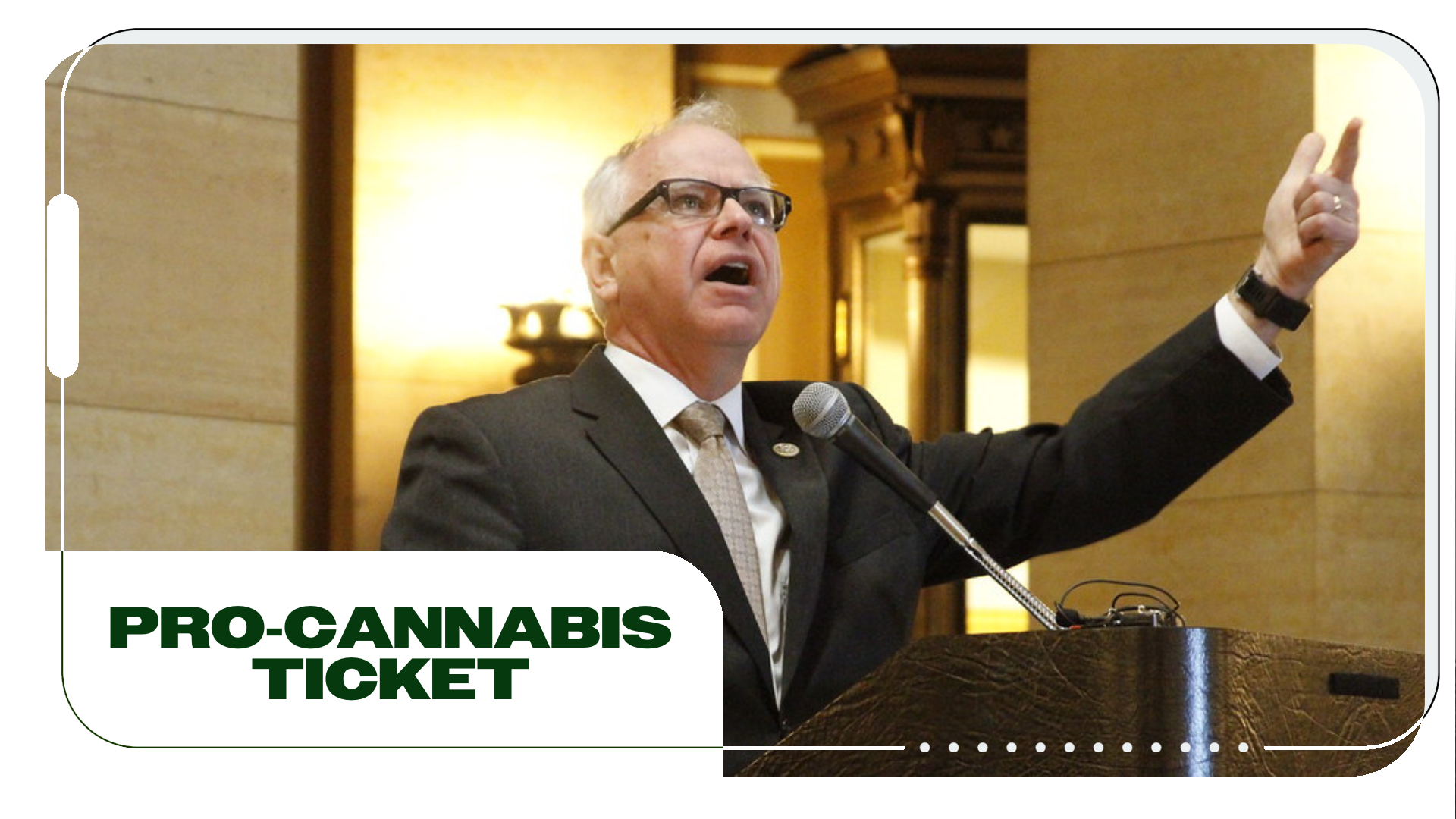Democratic President Nominee Kamala Harris announced Tim Walz as her running mate this week – marking the first major ticked to support cannabis legalization in United States history.
Walz is the current governor of his home state Minnesota. Just last year, Walz signed the state’s adult-use legislation into law, legalizing recreational cannabis use and expunging nonviolent cannabis convictions in the Land of 10,000 Lakes.
He’s also been a vocal advocate for the benefits of cannabis legalization, including not just economic growth but safety and justice as well.
“We’ve known for too long that prohibiting the use of cannabis hasn’t worked. By legalizing adult-use cannabis, we’re expanding our economy, creating jobs, and regulating the industry to keep Minnesotans safe,” Walz told CBS News. “Legalizing adult-use cannabis and expunging or resentencing cannabis convictions will strengthen communities. This is the right move for Minnesota.”
These progressive actions have earned him more than just a reputation for a justice-oriented, pro-cannabis ideology. He’s also just landed an A rating from NORML, the National Organization for the Reform of Marijuana Laws.
Now, Walz joins Harris in the bid for the White House.
Initially tough on marijuana-related crimes as a prosecutor in California, Kamala Harris has since become a strong advocate for decriminalizing marijuana at the federal level, pushing for significant changes in how it is classified and handled legally.
Walz’s presence on her ticket may inspire trust in the staunch cannabis advocates who have not forgotten Harris’s history in the cannabis space. This edge is one that she can’t afford to lose – as, on the day after the news of NORML’s rating for Walz, former President and Republican Nominee Donald Trump suggested that he may also support nationwide decriminalization.
Walz’s represents more than just a policy alignment on cannabis. His track record in Minnesota demonstrates a practical commitment to reform, one that values not just progress but healing — the healing of communities disproportionately affected by outdated drug policies and the healing of a nation grappling with its history of inequity.
By choosing Walz, the Harris campaign is not merely appealing to cannabis advocates but is making a broader statement: that the future of American leadership lies in confronting and rectifying the systemic failures of the past.
This decision could be a defining factor in reshaping the Democratic Party’s identity, bridging the gap between pragmatic governance and the moral imperative for change.
Author, Share & Comments








